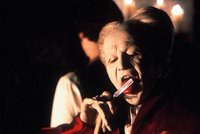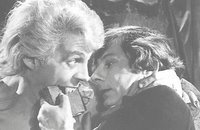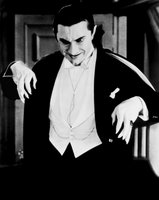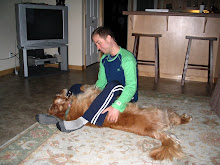them monkeys
"There's not a man I meet but doth salute me / As if I were their well-acquainted friend..."
—William Shakespeare, The Comedy of Errors, Act IV, Scene 3
This is but one example from the body of work of literature; it seems to be a fairly recent, and a very American, development to decry those who choose this option to solve their gendered pronoun issues, but that isn't what I want to talk about.
First of all, I believe whole-heartedly in Chomskyan grammar; that language is an organic entity unto itself, that it evolves on its own in ways that are not necessarily controlled by humans, and that it exists in a symbiotic relationship with people. I also agree more with the Sapir-Whorf hypothesis than with its detractors: that language at the very least helps up define and understand our world. I personally am inclined to believe an even stronger version of this idea, that in many ways language defines us and how we look at the world, and (most importantly in this context) how we define ourselves in relation to other people.
So. If language evolves... and in many ways shapes how we define ourselves and the structures of our inter-personal relationships... it makes the singular-they much more than a simple question of grammar. It becomes one of gender equality.
As is probably apparent by now, I am completely in the camp of the singular-they. What I love about the ideas of language as an organic entity and a defining energy is that it can evolve to help people overcome inherent biases by allowing us more ways to express ourselves and our relationships. English doesn't have an accepted gender-neutral singular pronoun? As it evolves it can incorporate one. Rather than the terribly awkward "he or she" or the unpronounceable s/he, why not a simple 'they'?
I can hear you now; you're saying, "okay, that's all well and good... but how does it fit in with the story of the hundredth monkey, hmmmm?"
Glad you asked.
For those you who aren't familiar with the idea, it's a simple parable about the power of the collective unconscious to foster change in the world. There is an archipelago, on which lives a species of monkey. They subsist primarily on root vegetables they dig out of the inland forest. One day, a monkey on one of the islands has taken a tuber to the edge of the water for some reason and accidentally drops it in. She picks it up and discovers, low and behold! It's waaaay tastier without all that dirt and grit all over it. Her brother notices her discovery and quickly learns to wash his own food. Soon the whole family, and then the whole tribe on the island, is washing their own food off before eating.
Here's the clever part; say there are 99 monkeys on that island. Suddenly, a monkey on a neighboring island carries his own potato out to the surf and drops it in. He's the hundredth monkey; the one who somehow caught on to the energy of new knowledge simply by his lifetime membership in the collective unconsciousness. Soon enough, all the monkeys on all the islands are washing their food. One discovers that, if you drop a potato in the
But I digress. Really, the whole reason I bring up the story of the hundredth monkey at all is to do my part to spread the seeds of the singular-they. Every ounce of psychic energy added to the collective soup is significant; by writing this blog and sending it off into the Interweb (an organic form of information in its own right, with the power to influence both language and the collective more quickly than any force ever before), I add my own small voice to the growing din clamoring for the acceptance of the singular-they when English 2.0 is finally released.





